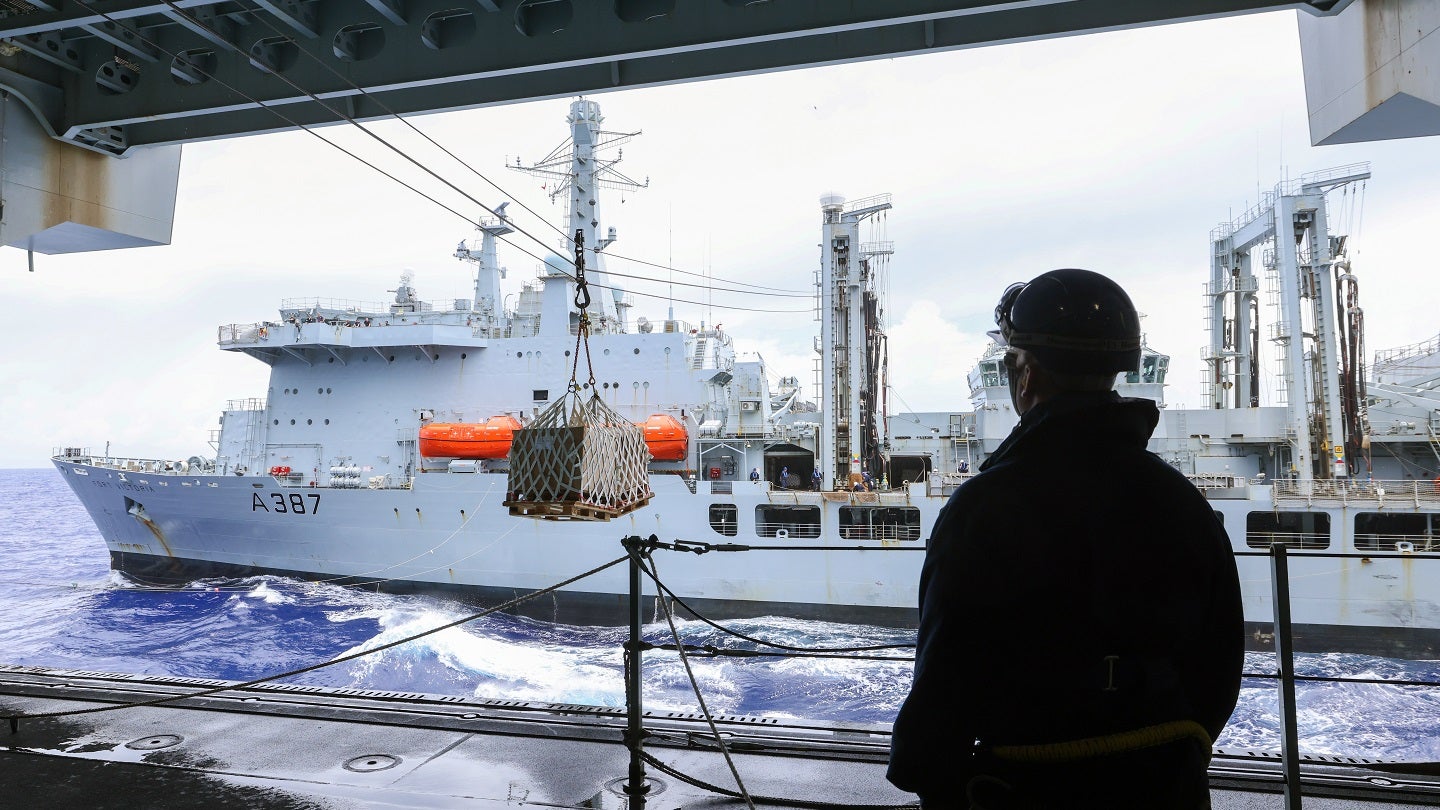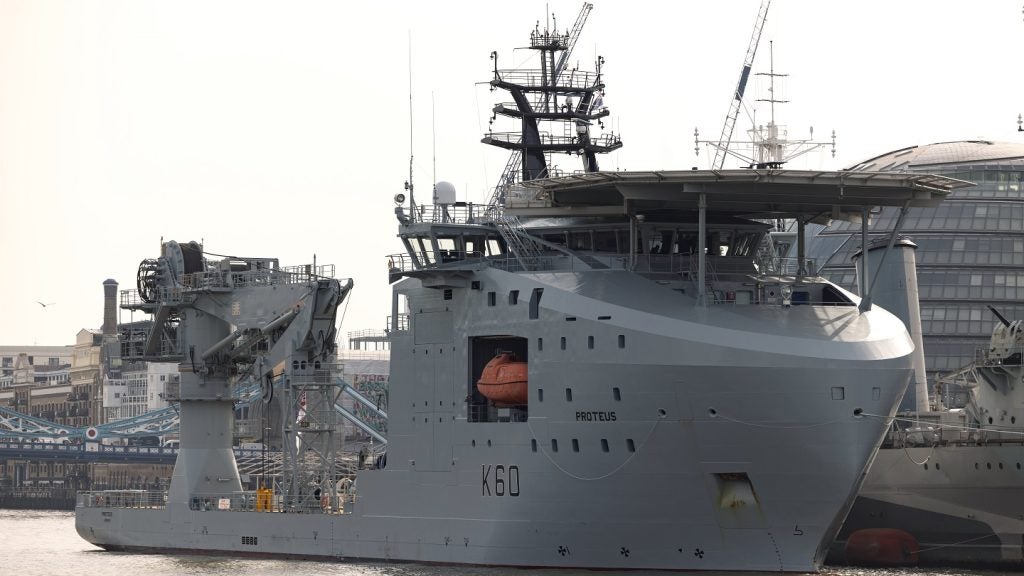
The UK Royal Fleet Auxiliary (RFA) has seen a sustained negative outflow of personnel from the service between 2010 and 2023, with a difference between incoming and outgoing calculated at minus 681 during the period.
During this time, the obligations of the RFA have grown, with new vessel classes introduced into service, including the Tide-class fleet tankers – RFA Tidespring (2017), RFA Tiderace (2018), RFA Tidesurge (2019), and RFA Tideforce (2019).
The first of the Multi-Role Ocean Surveillance (MROS) ships, RFA Proteus, was also introduced into service this year. RFA Stirling Castle, a mine countermeasures trials platform, joined the service in the third quarter of 2023.
In addition, up to three new Fleet Solid Support (FSS) ships are being built for the RFA, which, following the planned start of manufacture in 2025, will begin to be delivered into service around 2031.
From the start of manufacture of the FSS programme in 2025, intended to deliver three naval logistics vessels to the RFA, it will take six years before the first of the ships will enter service, it can be revealed.
According to figures released by the UK Government on 15 November, a total of 1,782 recruits joined the RFA from 2010 to 2023. In the same period, 2,463 personnel departed the service.
As of 21 November 2023, the RFA had a total of 13 vessels in its fleet, comprised of four Tide-class replenishment tankers, three Bay-class landing ship docks (RFA Cardigan Bay, RFA Lyme Bay and RFA Mounts Bay), two Wave-class tankers (RFA Wave Knight and RFA Wave Ruler) a single remaining Fort-class solid support vessel (RFA Fort Victoria, pictured above), aviation training platform and Role 3 medical facility RFA Argus, as well as RFA Stirling Castle and the MROS RFA Proteus.

In December 2010, the UK reported an RFA service strength of approximately 2,300 personnel. By May 2023, the UK Government reported that the RFA had 1,750 serving personnel, indicating an approximate 25% drop in RFA personnel numbers.
Put another way, more RFA personnel have left the service over the past ten years than there are currently serving in the fleet. The past two complete years (2021–22 and 2022–23) saw a significant uptick in annual outflow at 251 and 221, respectively, with inflow recorded at 167 in 2021–22 and 169 in 2022–23.
A net positive inflow was recorded in just three of the 13 years in the reporting period (2010–11, 2015–16 and 2020–21), with another year (2014–15) at parity.
In May this year, UK Defence Minister James Cartlidge confirmed that the two Wave-class tankers had been placed into extended readiness in 2022 (RFA Wave Knight) and 2017 (RFA Wave Ruler). Both vessels are scheduled to be kept in such conditions until 2028, under RFA management.
Typically, vessels placed in extended readiness are de-crewed, with personnel that would be assigned redistributed elsewhere depending on requirements.
In addition, in 2016 the RFA forward repair ship RFA Diligence was also decommissioned from service without replacement. The vessel, listed for sale for years afterwards, will be scrapped.
Refit and repair cost of the RFA fleet
Operating costs of the RFA are another factor to consider in how many vessels it can maintain in its fleet while also meeting the requirements placed on it by the Royal Navy. From 2010 to 2022, RFA refit costs from all in-service platforms amounted to £636.1m ($797.38m).
RFA managed vessels are maintained under the Future In-Service Support (FISS) agreement. These contracts were signed in 2018, have a duration of ten years, are worth approximately £1.1bn and are expected to deliver around £115m of savings, according to a 9 May parliamentary written response.
Prior to the signature of the FISS agreement, RFA managed vessels were managed under a set of five In-Service Support contracts. These contracts were awarded in 2008 and renewed in 2012 for a further five-year period at an additional cost of £349m.



